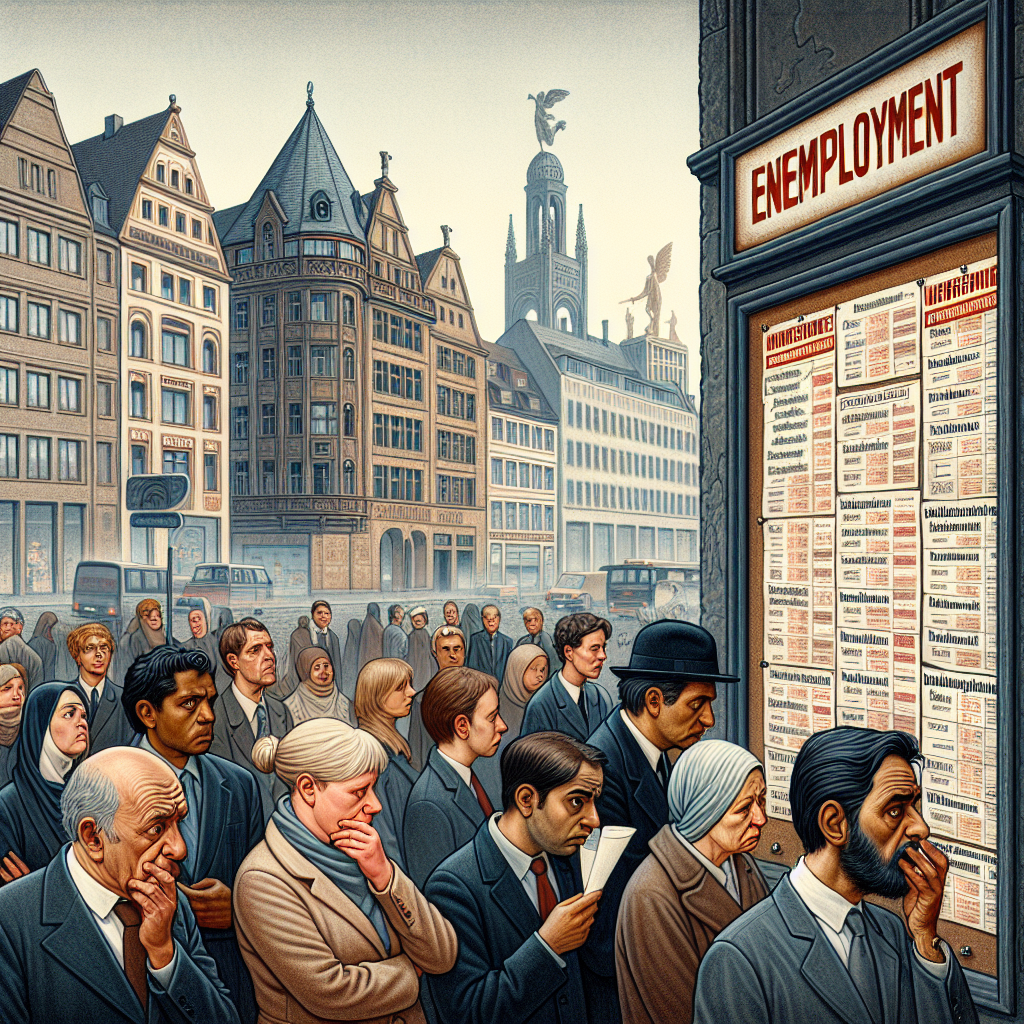Germany's Rising Unemployment: A Growing Challenge for Europe's Largest Economy
Germany's unemployment rate rose by 18,000 in July, surpassing expectations. The economic downturn, driven by high energy costs and record interest rates, led to increased unemployment and underemployment. Despite a historically strong labor market, the outlook remains bleak with rising insolvencies and decreasing recruitment plans.

Germany witnessed a steeper-than-expected increase in unemployment for July, according to the Federal Labour Office. The number of unemployed rose by 18,000, bringing the total to 2.8 million in seasonally adjusted terms, against analyst predictions of a 15,000 rise.
"The weak economic development is weighing on the labour market," said Daniel Terzenbach from the labour office. The jobless rate, however, stayed steady at 6.0%. July's uptick in unemployment and underemployment marks a notable shift attributed to the economic downturn, exacerbated by elevated energy costs and record-high interest rates.
The Ifo economic institute's employment barometer also hit its lowest since February, with only the services sector showing signs of hiring, albeit less than in previous months. ING economist Carsten Brzeski highlighted that the strong labour market had buffered the economy but warned that escalating insolvencies and dwindling recruitment plans might worsen labour market conditions.
(With inputs from agencies.)










